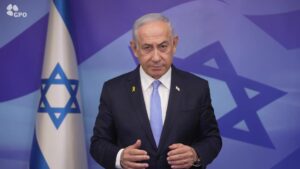Somalia to introduce direct universal suffrage in 2024
Mogadishu, Somalia (AFP):
Somalia’s government and federal member states said Sunday that direct universal suffrage would be introduced with local elections set for June 2024.
The move follows a pledge by President Hassan Sheikh Mohamud in March to end a complex indirect system in place since 1969.
“The basic principles should be that the election of the Federal Somali Republic must be one that gives the public the opportunity to cast their votes democratically in a one-person, one-vote system,” the government said after reaching an agreement with state leaders.
The reform aims to “encourage the multiparty political system” that is independent and “corruption free”, it added.
“We have decided to take the decision-making back to the people so that the voice of the Somali citizen becomes valuable in the matters pertaining to their future,” said President Mohamud to journalists on Sunday.
“We need to move out of the fear we are trapped in for 20 to 30 years and move to having a democratic election in this country: a one-person, one-vote election for both federal and federal member states levels,” he added.
Somalia is struggling to emerge from decades of conflict and chaos while battling a bloody insurgency and natural disasters including a punishing drought that has left millions facing hunger.
The country has not had one-person, one-vote elections nationwide since 1969, when the dictator Siad Barre seized power.
Instead, clan affiliations have been the organising principle of Somali politics, with influential roles such as speaker, prime minister and president divided among the main groups.
State legislatures and clan delegates also pick lawmakers for the national parliament, who in turn choose the president.
But rivalries between the clans have resulted in decades of strife and political wrangling, which in recent years have been exploited by the Al-Shabaab militants aligned with Al-Qaeda.
‘Bright future’
On Thursday, Somalia held its first elections by universal suffrage since 1969, in a local ballot in the semi-autonomous state of Puntland.
Direct voting has also been held in Puntland’s neighbour Somaliland, which declared independence in 1991 but has never been recognised internationally.
The African Union and several neighbouring governments hailed a “historic” vote.
“The partners believe that Puntland’s experience with direct elections has the potential to inform and inspire the expansion of democracy across Somalia, at all levels of government,” they said in a statement.
The agreement for nationwide universal suffrage was reached after four days of meetings by the National Consultative Forum, which included Mohamud, Prime Minister Hamza Abdi Barre and federal state leaders.
But Puntland’s state president Said Abdullahi Deni did not attend the meeting.
The agreement also calls for the implementation of a single presidential ticket in which voters would choose a president and vice-president, effectively quashing the prime minister post.
It still has to be approved by parliament.
Mohamud was elected in May 2022 after a protracted political crisis that arose after the federal government and regional states failed to agree on a mechanism to pick a president.
“Politics is not about dominance, it is about organisation of ideas and therefore, the clan politics is not relevant to the Somali national politics,” Mohamud said when unveiling his pledge for universal suffrage in March.
“I can see a bright future for this country.”
Mohamud is Somalia’s first president to win a second term, after being in office from 2012 to 2017.
He has vowed to confront myriad problems and bring relief to citizens weary of violence by Al-Shabaab, surging inflation and a worsening drought that threatens to drive millions into famine.









